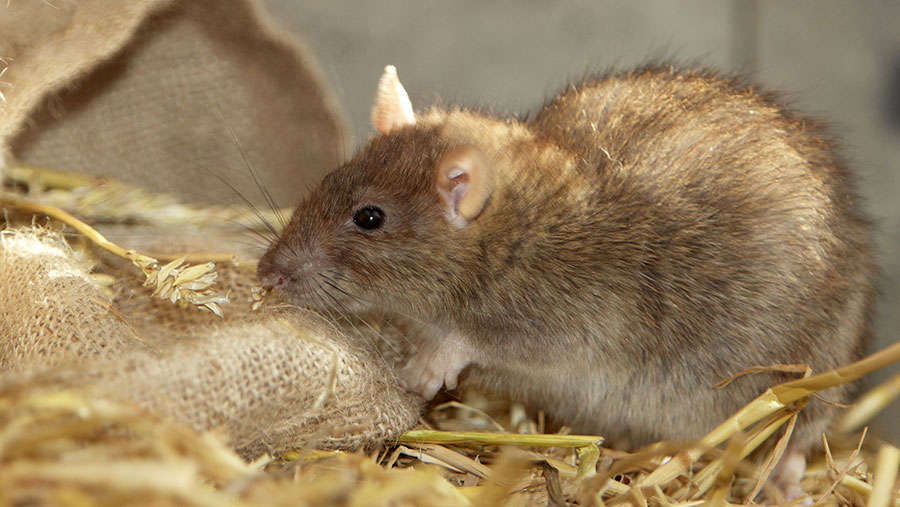Farmers told rat control training not a ‘lifetime pass’
 © FLPA/REX/Shutterstock
© FLPA/REX/Shutterstock Farmers must not view certificates or farm assurance as a “lifetime pass” for the use of professional rodenticides, says the industry stewardship body currently developing training schemes for continued professional development (CPD).
Instead, farmers are being urged to engage with future training initiatives to stay abreast of the latest understanding and best practice around rodent control.
The additional courses follow a growing of body of research that has found nine genetic strains of rat each resistant to anticoagulant rodenticide.
This year a Reading University study detailed the “massive extent” of resistant rats across central southern England.
And while extra courses would not be mandatory, Campaign for Responsible Rodenticide Use chairman Alan Buckle says best practice is key to keep rodenticides working.
See also: Advice: Who has the right to buy rodenticides?
Key areas for rodenticide use
- Limiting potential for secondary poisoning in non-target species for example, barn owls, red kites
- Monitor populations routinely with trapping
- Time-limited baiting periods – permanent bating is no longer allowed
- Rat tissue sampling to analyse resistance and develop control plans
This follows stricter rules on the buying and selling of professional rodenticides back in October 2016.
As of 1 January 2018, farmers and growers seeking to buy rat baits must be able to:
- Show they are part of a compliant assurance scheme
- Show they have completed an approved training course
Who is certified?
- More than 97,000 farmers are now on stewardship-approved assurance schemes
- 23% of farmers hold stewardship certification, up from 19% in 2015
- 13,000 professional pest controllers carry certification
- 11 assurance schemes qualify: AIC’s Trade Assurance Scheme for Combinable Crops, British Egg Industry, Council’s Lion Code, Duck Assurance Scheme, Farm Assured Welsh Livestock, Laid in Britain, Northern Ireland Beef and Lamb Farm Quality Assurance, Northern Ireland Farm Quality Assured Cereals, Quality British Turkey, Quality Meat Scotland, Red Tractor Farm Assurance, Scottish Quality Crops.
NFU senior regulatory affairs adviser Chris Hartfield told Farmers Weekly farmers should take up the additional training, stressing the importance of “collective responsibility”.
“If farmers don’t follow best practice guidelines, it risks rodenticide products in the future,” he said. “The only way of baiting rats could end up being buying rodenticide products that members of the public buy.
“There is a lot of awareness raising that still needs to be done regarding the risk around professional rodenticides. We are increasingly talking about rodenticides.”
